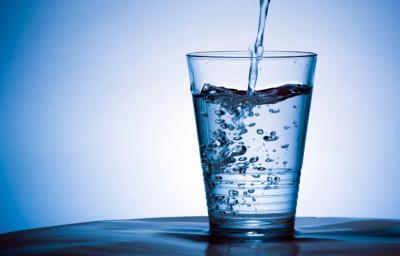Water Treatment Disinfection with Monochloramine
The Town of Exeter Water Department converted from free chlorine to monochloramines for secondary disinfection of the water distribution system in April 2019. For most regular uses of potable water, chloraminated water is the same as chlorinated water. However, kidney dialysis patients, aquarium owners with fish, amphibians, reptiles and crustaceans need to take special care with chloraminated water. Chloramines must be removed from the water used in the dialysis process, or water used in live fish and crustacean tanks. Please refer to the Town of Exeter website for additional information about chloramination. If you have any questions, please call Public Works at (603) 773-6157.
News Release from the Town of Exeter Department of Public Works Regarding Water Treatment Disinfection using Monochloramine
Exeter, NH – Beginning early April of 2019, the Exeter Water Department will begin using monochloramine in the drinking water disinfection process. Monochloramine is an effective, long-lasting disinfectant that reduces the potential risk associated with regulated disinfection byproducts in tap water. Water customers in Exeter, NH and Stratham Industrial Park will be affected by this change.
Federal and state regulations require Exeter Public Works to maintain a disinfectant in our distribution system to protect public health. Monochloramine was selected as the method of choice because the US Environmental Protection Agency (US EPA) considers it safe and beneficial at levels typically used to treat water. Additionally, Exeter Public Works worked with New Hampshire Department of Environmental Services (NH DES) and the consultant team to select monochloramine because it produces lower levels of disinfection byproducts, can be retrofit to the existing treatment facilities, and is an affordable option to return to compliance with total trihalomethane (TTHM) levels in the distribution system.
With the conversion to monochloramine, Exeter water customers will receive high-quality drinking water that meets or surpasses stringent US EPA requirements. Today, more than one in five Americans use drinking water treated with monochloramine. Monochloramine has been safely and successfully used by water utilities for more than 90 years. Boston, Dallas, Houston, San Diego, San Francisco, Tampa Bay, Miami, Denver, Philadelphia, Minneapolis and many other cities are all successfully using monochloramine to treat drinking water. In New Hampshire Manchester, Concord, Salem, and Hillsborough use monochloramines.
Specifically, the change to monochloramine will:
Reduce the level of regulated disinfection byproducts formed when disinfectants mix with trace quantities of naturally occurring organic substances found in water; some disinfection byproducts are considered harmful with prolonged exposure.
Provide the most economical treatment option available to Exeter.
Reduce chlorine taste and odor in tap water.
Although safe for drinking, cooking and all typical uses, monochloramine can be harmful to kidney dialysis patients. These patients can safely drink, cook, and bathe in monochloramine-treated water, but monochloramine must be removed from the water used in kidney dialysis machines. Medical centers that perform dialysis or supervise home dialysis are responsible for ensuring water is purified before it enters the dialysis machine. These facilities have been notified of the upcoming change.
Monochloramine is also harmful to fish and other aquatic life when it directly enters the bloodstream from water that passes through their gills. Therefore, monochloramine must be removed from water used for fresh or saltwater aquariums and ponds, or any habitats that include Koi fish, lobster, shrimp, frogs, turtles, snails, clams, and live coral. To protect fish and amphibians, use treatment products to remove monochloramine from tap water. These products are readily available at most pet supply stores and aquarium dealers. Leaving water to sit for a few days is not an effective method for removing monochloramine, because monochloramine is longer lasting than chlorine and will not dissipate from water.
Any questions can be directed to Public Works at publicworks@exeternh.gov or by phone 603-773-6157.

